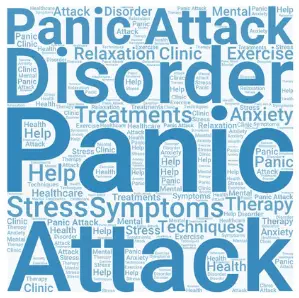Panic attacks can be terrifying, but there are things that you can do to help yourself. When you have a panic attack at school, it is important to try and stay calm. If you can, try to take some deep breaths and focus on something else. It can also help to tell someone else what is going on so they can help you. If you feel like you will faint or have a heart attack, it is vital to seek medical help immediately.

If you suffer from panic attacks regularly, it is important to speak to a doctor or therapist so they can help you manage them. Panic attacks can be very disruptive to your life, but with the right help, you can overcome them.
1 in 10 children suffers from panic attacks at school. This can be a debilitating condition that affects their ability to learn. This will also affect their efforts to take part in classroom activities. If your child is suffering from panic attacks at school, there are some things you can do to help them cope and manage their condition. Here are some tips:
-Talk to your child’s teacher about their condition. Let them know what triggers their anxiety attacks. This will help the teacher be aware of potential triggers and be able to help your child avoid or cope with them.
-Encourage your child to take breaks when they feel a panic or anxiety attack. They can go to the bathroom, step outside for fresh air, or sit in their seat and close their eyes for a few minutes.
-Help your child develop a relaxation technique they can use when they feel a panic attack coming on. This could be deep breathing, visualization, or even holding a stress ball.
-Talk to your child about their condition and tell them you are there for them. This can help them feel more comfortable talking about their panic attacks. They will then seek help for anxiety attacks when they need it.
Panic attacks can be very debilitating. It often prevents sufferers from participating in activities that they enjoy or need to do. For students, this can mean missing out on important parts of their education. They can also feel isolated from their peers. Panic attacks at school can also trigger a cycle of anxiety and avoidance. This can make students anxious about returning to school and missing more days. This can lead to academic problems and social isolation. In severe cases, students may be forced to change schools or drop out altogether. Panic attacks at school can significantly impact students’ lives and their ability to succeed academically.
Panic attacks can significantly impact students’ lives and their ability to succeed academically. If your child is suffering from panic attacks at school, it is essential to talk to their teacher about the condition. You can work with the teacher to devise a plan to help your child cope. There are also things you can do at home to help your child. You can help them come up with a relaxation technique that they can use. Please encourage them to take breaks when they feel a panic attack coming on. It is most important to talk to your child about their condition and let them know you are there for them. This can help them feel more comfortable talking about their panic attacks and seeking help when they need it.
